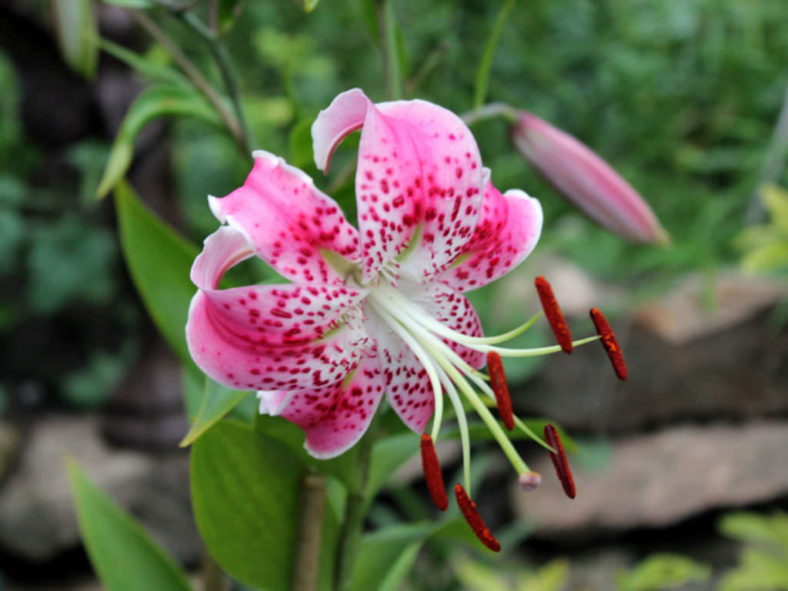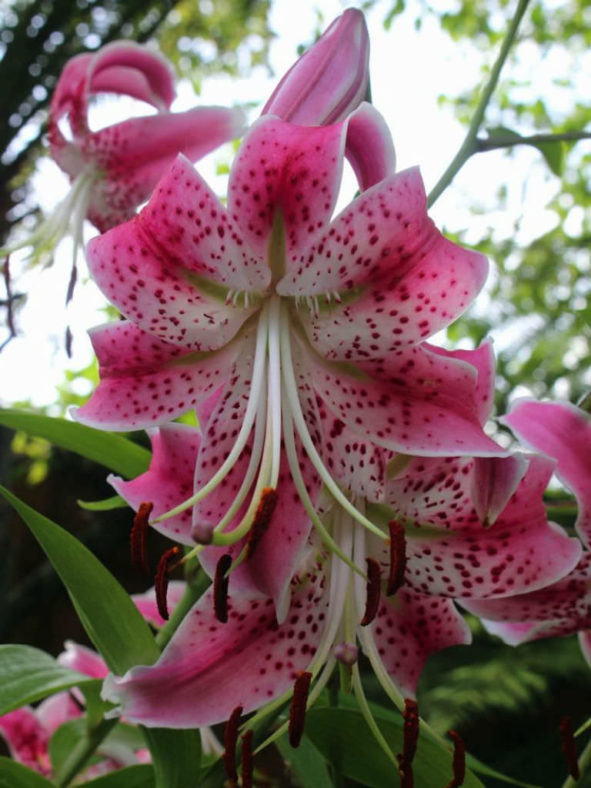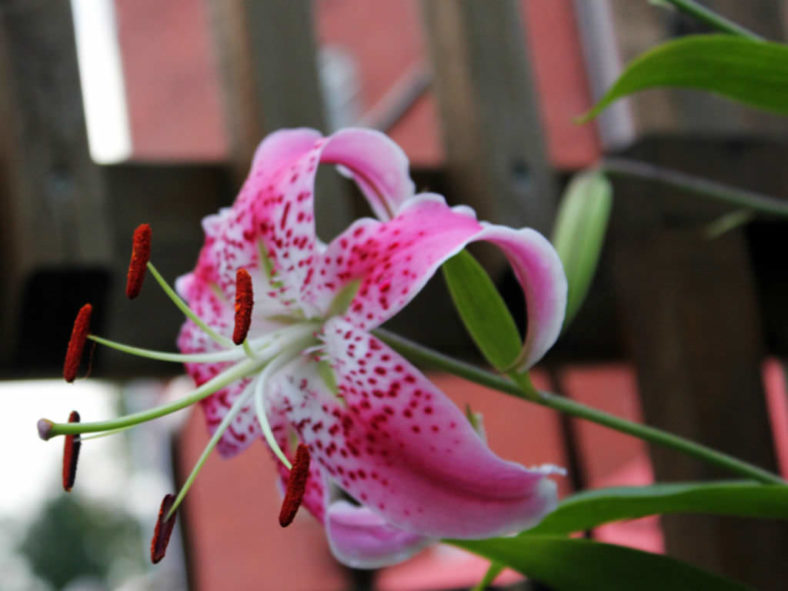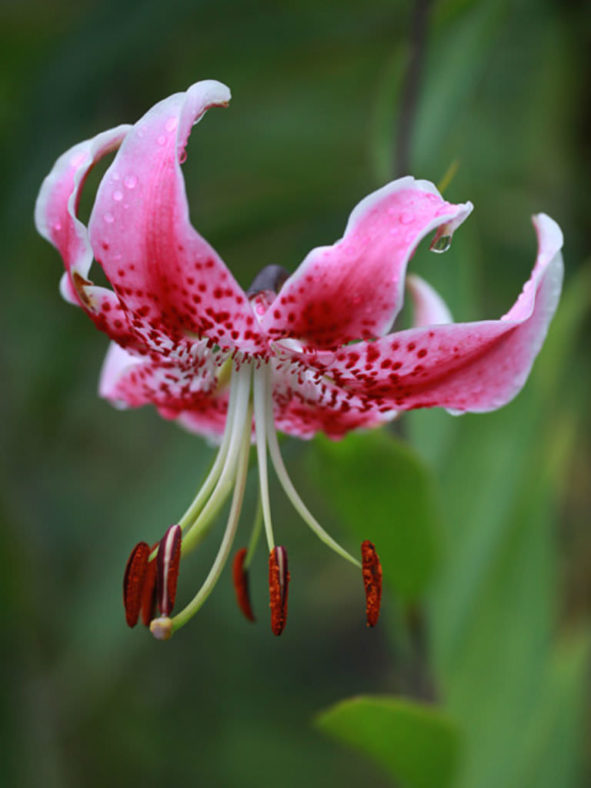Scientific Name
Lilium speciosum var. rubrum Lem.
Common Name(s)
Japanese Lily
Synonym(s)
Lilium speciosum f. rubrum, Lilium lancifolium var. rubrum
Scientific Classification
Family: Liliaceae
Subfamily: Lilioideae
Tribe: Lilieae
Genus: Lilium
Origin
Lilium speciosum var. rubrum is native to southern Japan and southern China.
Flower
Color: Deep carmine-pink
Bloom Time: Late summer to early fall
Description
Lilium speciosum var. rubrum is a beautiful plant that grows up to 4 feet (1.2 m) tall and up to 1 foot (30 cm) wide.
The flowers are large, fragrant, deep carmine-pink with purple-brown stems and appear from late summer to early fall.

Hardiness
USDA hardiness zone 5a to 7b: from −20 °F (−28.9 °C) to 10 °F (−12.2 °C).
How to Grow and Care
Though lilies look like they'd be fussy plants, they are actually very easy to grow. They're not particular about soil type or pH, and they grow well in full sun, part sun, dappled shade, and even light shade.
Plant lilies as soon as you get them, either in the fall or the spring. Because the bulbs lack the papery covering, known as a "tunic," common to other hardy bulbs, they can dry out quickly in storage.
Even more than other bulbs, lilies demand well-drained soil. Dig the spot where you plan to plant lilies to a depth of at least 12 inches (30 cm), remove rocks and add organic matter, such as leaf mold or peat moss, to improve the soil's structure and drainage. Like other bulbs, lilies appreciate a little bone meal scratched at the bottom of the planting hole but do not really require other fertilizers at planting time. Instead, wait until the bulbs send up green leaves and then sprinkle a complete organic fertilizer around the plant and water it in.
See more at How to Grow and Care for Lilies.
Links
- Back to genus Lilium
- Plantpedia: Browse flowering plants by Scientific Name, Common Name, Genus, Family, USDA Hardiness Zone, or Origin
Photo Gallery
Click on a photo to see a larger version.




